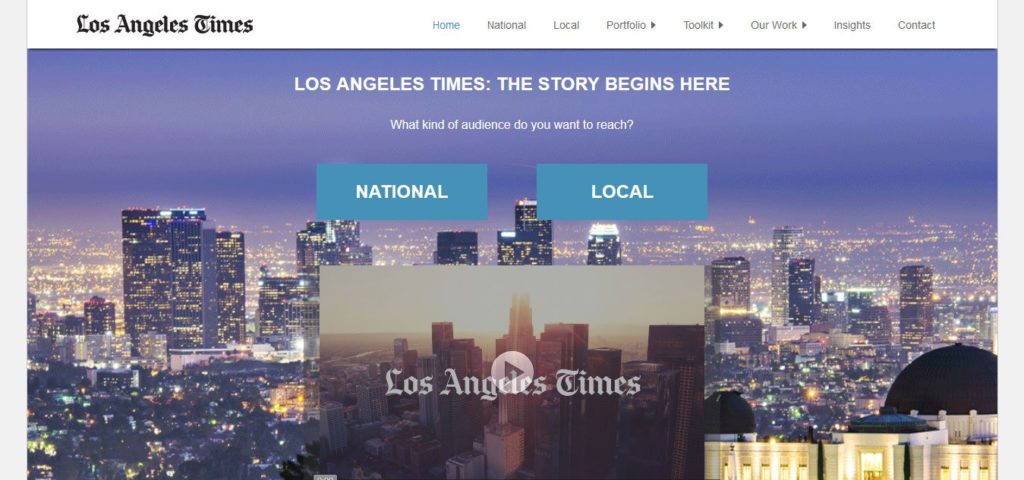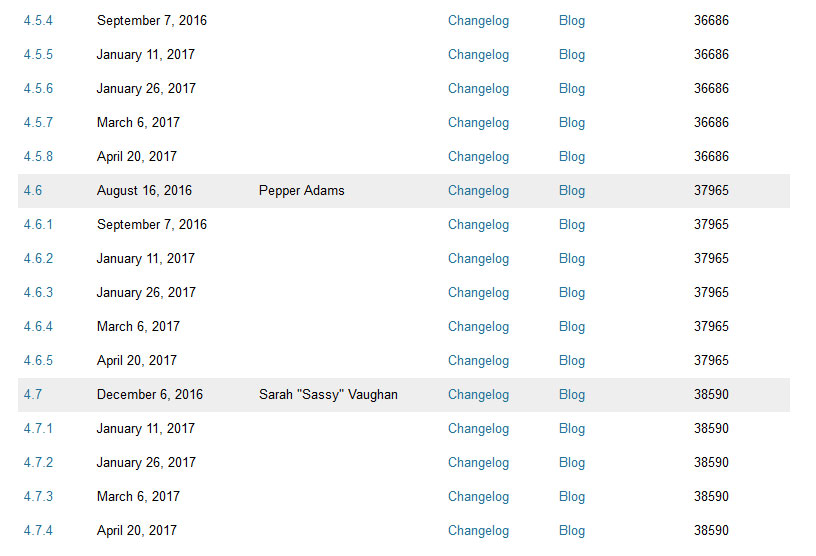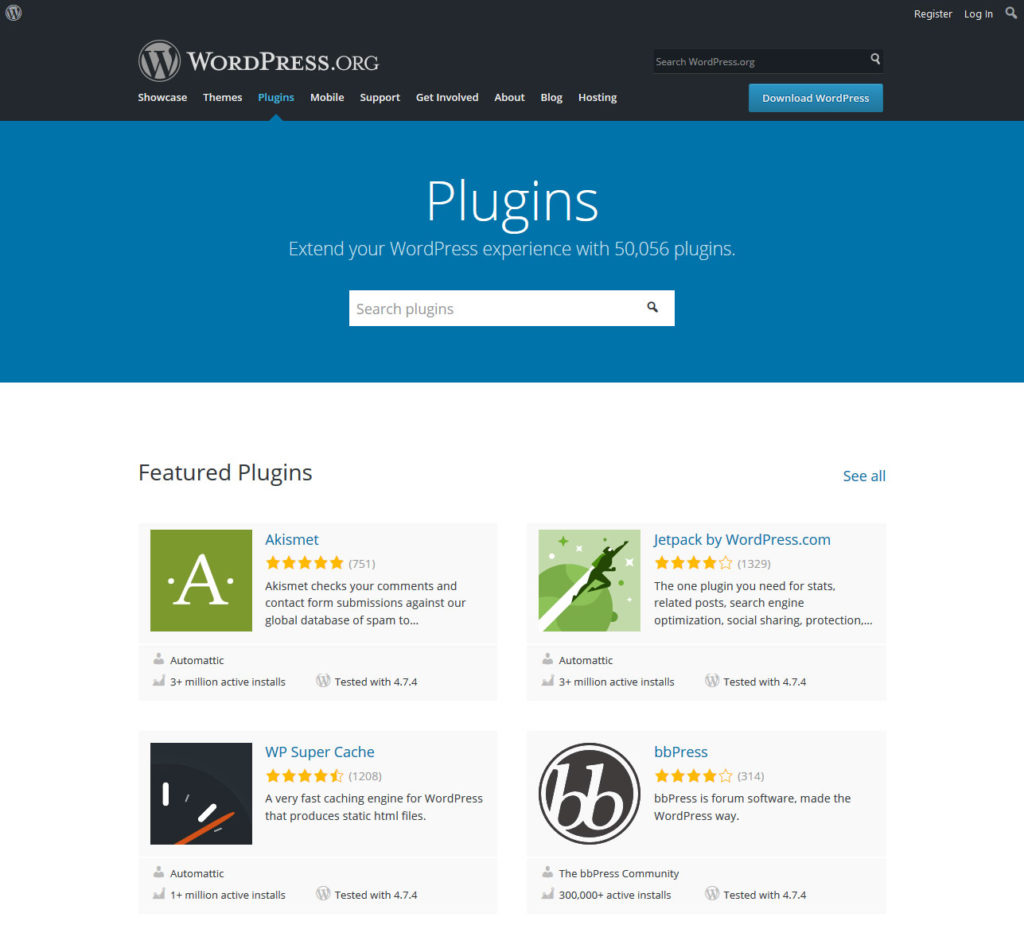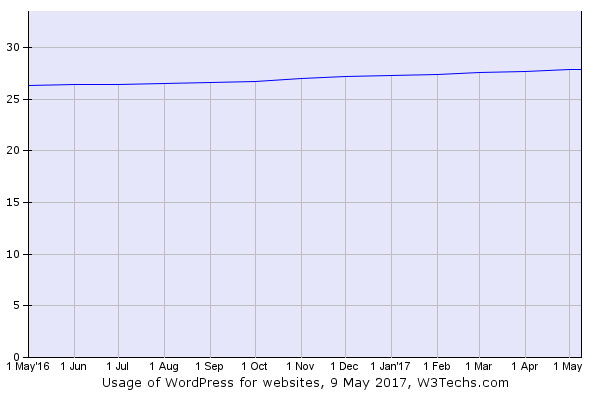Building and running an enterprise website presents a unique set of challenges. Enterprise sites often represent large, multinational business entities and as such need to work on a similar scale as their parent companies. That usually means lots of pages, subdomains and subsites, high traffic, and localized content.
In the past, enterprise websites would often rely on proprietary custom solutions. Closed systems that make users dependent on their vendors and, as commercial products, also represent a financial commitment. However, if your goal was to build a site for your business, this was the way to go.
WordPress, on the other hand, is historically seen as a blogging platform, tool for personal websites, small businesses, and entrepreneurs. Good for the masses, yet not suitable for Fortune 500 companies.
Yet, that representation is no longer accurate. By now, WordPress has grown into a full-fledged CMS capable of powering websites of all kinds and sizes, including in the enterprise sector.
In the following article, we will show why using WordPress for enterprise websites is an excellent option and will only become more so. Sounds intriguing? Then just keep reading.
WordPress for Enterprise – 9 Good Reasons to Consider It
In the following, you will learn more about what makes WordPress suitable as an enterprise CMS.
Not Just for Blogs Anymore
True, WordPress started as blogging platform, however, it has long moved past that. Today, the platform is used to create all sorts of websites including some of the most famous on the web.
While content creation will always be at the heart of WordPress, its ability goes way beyond blogging. Today, you can build pretty much any website with WordPress including ecommerce, business websites, portfolio websites, news sites — even mobile apps.
If you have doubts, the WordPress showcase will lay them to rest.
Low Cost
One problem with proprietary CMS solutions is often the cost factor. Licenses can cost a pretty penny for a system that makes you completely dependent on its maker.
WordPress, on the other hand, is a free piece of software. Instead of belonging to a company, it’s an open source project maintained by developers and volunteers around the world. Anyone can download, copy, modify, and use the software to their heart’s content.
Using WordPress also gives you access to thousands of free themes and plugins that can further enhance your site’s design and performance. Even if there is no solution that meets your needs, existing work can function as a starting point to create custom solutions, saving time and money in the process.
In addition to that, WordPress has created a huge ecosystem of experts, making professional and affordable help very much available when you need it.
Highly Reliable
One of the benefits of working with a company is that you have a single point of contact. Someone who guarantees upkeep, updates, maintenance and generally takes care of the product you are using.
Since WordPress is not owned by one entity, you would think this makes it too unreliable to consider WordPress for the enterprise. However, quite the opposite is the case.
Remember those volunteers mentioned earlier who develop WordPress? They are the most sophisticated coders, test, rs and developers on the planet. Plus, their work is supported by some of the most successful WordPress companies who have a keen interest in the advancement of the software.
As a consequence, WordPress has a predictable update cycle that regularly adds patches, features and technical improvements.
For that reason, fearing that the software powering your site will fall into disrepair is entirely unwarranted.
Quite the opposite. Since WordPress is not bound to one entity but a dynamic community, abandonment of the project is less likely. On the other hand, if the maker of a commercial CMS goes under, your whole support system goes with it.
In addition to that, WordPress is built with mature technology like PHP, SQL, and JavaScript. They are widely used on the net and have proven their effectiveness many times over.
If that wasn’t enough, after more than a decade of development, WordPress has been tested on millions of websites. As a result, it has become a refined, sophisticated, and reliable piece of software.
Scalable
Scalability is an important consideration for enterprise websites. If your CMS can’t handle the number of your pages or is brought to its knees at the first traffic surge, it’s really not suitable.
So, is WordPress up to the task? There’s plenty of evidence to the affirmative.
First of all, the WordPress platform is suitable to work on hosting environments of almost any kind and size. It can power anything from a simple site to whole multisite networks. For example, WordPress.com, a WordPress-based blog network, handles more than 23 billion page views per month.
Scalability is also the reason some of the biggest names in online publishing use WordPress including The New York Times, CNN, TechCrunch and Microsoft. If it’s good enough for them, it should be able to meet your needs.
Safe
Safety is an important consideration on the Internet. That’s even more true for high-profile targets as the Sony hack has shown. For that reason, when using WordPress for enterprise-scale sites, the CMS better be up to snuff.
It’s true that WordPress received its share of negative press in terms of safety in the past. However, most of it was due to faulty themes and plugins made by third parties. The WordPress core product, on the other hand, has never been safer.
Thanks to a dedicated team of industry experts who work in cooperation with leading hosting providers and others in the field, WordPress is as secure as can be.
Not only do they check all reported issues but also have the possibility to swiftly publish security updates if necessary. These are automatically applied to existing WordPress installations unless this feature was specifically switched off.
In addition to that, there are plenty of things users can do to keep their site safe. By learning how WordPress sites get hacked and adhering to security best practices, you can reduce the likelihood of your site being compromised to almost zero.
Expandable and Flexible
Plugins and themes are at the heart of WordPress’ success. They allow users to turn the core WordPress product into anything they need.
Currently we have several thousand themes and 50,000+ plugins in the WordPress directory. With numbers like that, chances are good that whatever you need for your enterprise website, a solution is already out there. Yet, even if not, due to the openness of the platform, an experienced developer will be able to create a custom solution.
In addition to that, solid APIs like the WP REST API also open up the platform to the rest of the Internet, making it easy to integrate third party software with WordPress websites.
Flexibility also extends to the devices that WordPress websites can be viewed on. Mobile responsiveness is now standard with all new WordPress themes and even if your existing theme is not equipped with it, it’s easy to introduce responsiveness after the fact.
Finally, to address a global market, WordPress is ready for internationalization. Out of the box the CMS is supports more than a hundred languages including corresponding date, time and currency formats. Plus, you have plenty of plugins for translating WordPress websites to offer users the language of your choosing.
Easy to Use for Teams and Individuals
Ease of use is another chief concern when it comes to enterprise websites. Since sites of this kind are often taken care of by teams, you need a system that is easily accessible for users of different skill levels.
The good news is that WordPress is very beginner friendly as evidenced by the countless individuals who have used it to start websites without any prior knowledge in web technology. The intuitive interface, extensive management tools, support for multimedia and other factors make WordPress a breeze to work with.
In addition to that, you have loads of tools to make collaboration as a team even easier. First of all, user roles and permission levels allow you to give users access abilities according to their needs. You can even create additional custom user roles in case the standard options are not satisfactory.
Aside from that, we have awesome plugins to enhance content workflow available to enhance collaboration between team members.
Search Engine Friendly
Presence on the net means presence in search engines. After all, 93 percent of online experiences start with a search query.
For that reason, you will be happy to hear that WordPress is extremely search-engine friendly out of the box. Standard features like custom permalinks, RSS feeds, breadcrumbs, sitemaps, built-in robots.txt, SEO-friendly markup, and more make it a treat for search engines. Google, for one, is a fan:
In addition to that, the WordPress sphere has produced excellent SEO plugins like Yoast SEO and All-in-One SEO Pack that are able to take your on-page SEO to the next level.
Therefore, if your goal is to dominate the search results with your enterprise website, WordPress is an excellent vehicle to do so.
Future Proof
Finally, there is the question of whether WordPress is a worthy long-term investment. After all, what good is a free CMS if you need to replace your complex enterprise website in a short amount of time because it has been abandoned?
If that is a concern, you can absolutely lay it to rest. Why? Well, first of all, if you look at WordPress user statistics, you can see that the number are only going up.
Consequently, the platform is unlikely to move into obscurity any time soon. This trend goes hand in hand with official plans to grow the market share of WordPress to 50+ percent.
Furthermore, there are concerted efforts to integrate modern technologies into the platform. The WP REST API and the JavaScript-based Calypso admin panel are signs of things to come.
So, it looks like WordPress will be around for quite some time and any investment in the platform is a solid investment into the future.
WordPress for Enterprise – Is It Worth It?
Using WordPress for enterprise-scale websites is becoming more and more commonplace. The platform has proven to be able to accommodate the specific needs of large-scale and complex sites.
It is reliable, secure, scalable and meets a whole host of other requirements of enterprise clients. In addition to that, the non-existent price tag is and appealing factor and good news for the bottom line.
This development will likely continue in the future, so we will only see more enterprise websites built with WordPress as the CMS. Will yours be one of them?
Have you used WordPress to build an enterprise website? Care to share your experience? Please do so in the comments section below!





7 Comments